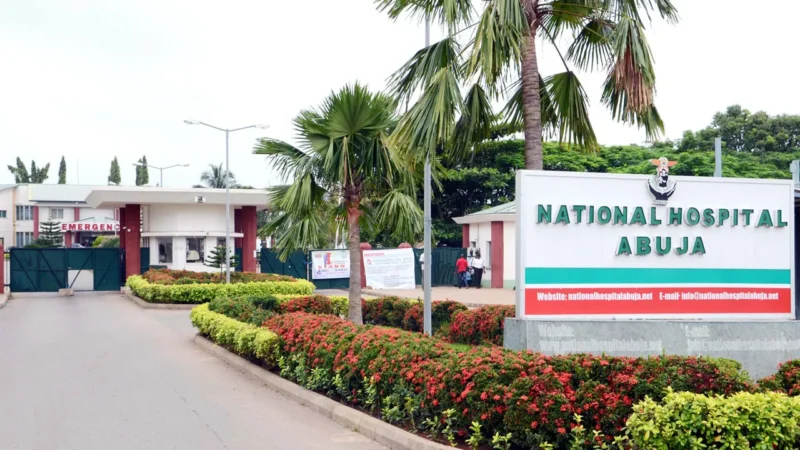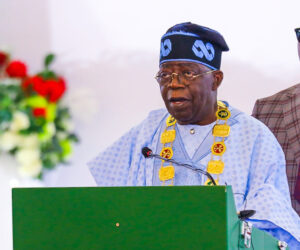A sharp rise in patient attendance has been recorded across private hospitals in different parts of the country following the ongoing strike by the Nigerian Association of Resident Doctors (NARD), the Joint Health Sector Unions (JOHESU) and the Assembly of Health Care Professional Associations.
JOHESU’s shutdown, which began at midnight on November 14, has left many public health facilities without laboratory scientists, radiographers, physiotherapists, optometrists, pharmacists or dieticians on duty.
The unions blamed the industrial action on the federal government’s failure to implement the adjusted Consolidated Health Salary Structure (CONHESS) and address long-standing welfare and systemic challenges affecting health workers.
SPONSOR AD
Resident doctors have also been on strike since November 1 over unpaid hazard allowance arrears, poor working conditions and the government’s failure to implement welfare reforms.
Abuja
Visits to several private clinics in Kubwa, Wuse and Lokogoma on Tuesday showed crowded waiting rooms, long consultation hours and unusual pressure on medical staff.
At a private hospital in Kubwa, Abigail Okafor, who brought her son for treatment, said she had no choice but to switch from the public hospital she normally uses.
“I waited for hours at the general hospital only to be told no doctor was available. Here, it’s more expensive, but at least someone will attend to you,” she said.
Another patient, Taiwo Benjamin, at a clinic in Wuse, described the surge as overwhelming.
“People are just trooping in. Some days you won’t even get space to sit. But what can we do? Government hospitals are shut down,” he said.
Doctors in private facilities also confirmed the increased workload. A senior medical officer in Garki, who asked not to be named, said the strike had “doubled” patient turnout.
“We are managing, but it’s stretching us,” he said.
Daily Trust gathered that some government-employed doctors are allegedly consulting in private hospitals during the strike. Although several hospital managements declined comment, a private clinic administrator in Asokoro confirmed that such practices occur.
“It’s not new. Some of them consult here from time to time. When government hospitals close, they naturally come in more often,” she said.
However, a doctor from a federal hospital denied the allegation, saying not all government doctors engage in private practice.
“Some of us are not consulting anywhere. People should avoid generalising. It’s very difficult to be a government doctor and still operate privately; there’s nothing to fall back on apart from our salaries,” he said.
Borno
In Maiduguri, the strike in federal hospitals has taken a toll on both patients and medical personnel. At the University of Maiduguri Teaching Hospital, over 200 patients were discharged, forcing many to seek care in private hospitals.
“We had to let them leave to seek medical care elsewhere due to lack of doctors, and some services were also affected,” a hospital source said.
Bakaka Lamin, whose wife is pregnant and due for delivery, said they were left with no option when doctors became unavailable.
“My wife was asked to open a file with normal delivery charges of N87,000. Many pregnant women like her returned home because they couldn’t afford it. The first private clinic I went to was outrageous—normal delivery is N125,000, and N235,000 if she needs to be induced,” he said.
Across private clinics visited, patients—mostly pregnant women and children—were seen negotiating prices to find affordable care.
A doctor in a private clinic, who spoke anonymously, said he was promoted more than a year ago, yet the increase had not reflected in his salary.
“Virtually all the hospitals and even some medicine stores in this town are owned by medical doctors. This is the situation we found ourselves in,” he said.
Benue
In Benue State, private hospitals are witnessing increased patronage as patients who would ordinarily visit government-owned facilities turn to them instead.
With only skeletal services at the Federal Medical Centre (FMC) Makurdi and the Benue State University Teaching Hospital (BSUTH), many patients now rely on private hospitals for treatment.
Several popular private clinics in Makurdi have become major centres of care. A patient, Ada Onogwu, who was turned back at BSUTH, said she is now admitted in a private clinic where striking government doctors are attending to patients.
“At least I have seen two of them here,” she said.
Mrs Rebecca Onu, a diabetic patient who usually receives care at the Federal Teaching Hospital, Otukpo, has also switched to a private clinic near her home.
BSUTH workers, who spoke anonymously, said no new patients are being admitted except those who were already on admission before the strike and whose conditions are not life-threatening.
“Emergency cases are attended to, stabilised and then discharged to seek proper treatment elsewhere. No new patients are being admitted,” they said.
At FMC Makurdi, the situation is similar, with patients on appointment unable to see their doctors. Some patients claimed that these same doctors are working in private hospitals on different schedules.
Terkula Hemba said patronage has risen at the private hospital where he receives treatment.
“One of the doctors from FMC just finished performing an operation. Another attended to outpatients, including me,” he added.
Bauchi
Private hospitals in Bauchi metropolis are also experiencing a sharp rise in patronage following the ongoing strike by resident doctors and JOHESU.
When our correspondent visited some private facilities, he observed high patient turnout, long queues at consulting rooms and increased activity at medical laboratory centres where patients now go for screening and diagnosis.
At a private hospital in the Igbo quarters area, wards were full, and many patients queued at both the consulting rooms and laboratory section.
A staff member, who requested anonymity, said all wards were filled due to the surge.
The source added that many of the senior doctors in the private hospital also work in the teaching hospital.
Abdulkadir Shehu, who brought his sick wife for treatment, said the strike forced them to seek care in private facilities.
“My wife’s condition is worsening. I don’t have any other option than to bring her here where at least a doctor can manage her,” he said.
Lagos
A doctor in a private hospital in Lagos confirmed a surge in patient visits since the strike began. He said most patients turned to private facilities to continue their treatment, adding that the influx had overstretched manpower.
“There has been a surge in private facilities. Some chronically ill patients would normally be in government hospitals, but because of the industrial action, they have to come here to stabilise and continue care.
“We are trying to cope, but it is stretching us,” he said.
Kano
In Kano, private hospitals visited by our correspondent were crowded with patients seeking medical attention.
At one facility along Gwarzo Road, a receptionist described the turnout as “unprecedented and unusual.”
“Before, we used to receive an average of 25–30 patients daily, but the number has now risen to about 50 and above,” she said.
As a Nigerian living here or in the diaspora, DO YOU HAVE A PLAN B? Just in case anything goes wrong, is there a side business you can fall back on? We show you step by step how you too can start earning US Dollars consistently. Nigerians can now make as much as $20,000 to $35,000 with premium domains. Ideal for business owners, entrepreneurs, and workers.
Click here to find out how it works






